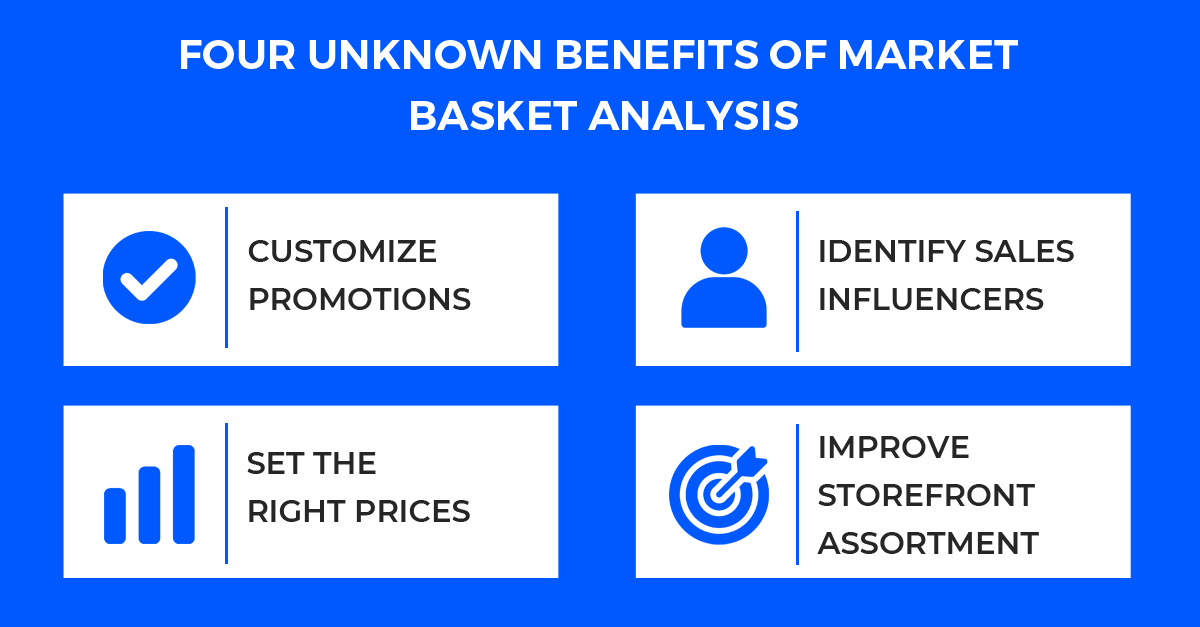How Data Science Can Help Boost eCommerce Sales?
-
 Nidhi Arora
Nidhi Arora
- 4 years

Data is Commerce. Out of all the benefits that technology has provided us, only a few can compare to the power of data. Today, we can collect data from different sources and when used effectively, it can have a huge impact on the sales and revenue of a business.
While many eCommerce businesses are trying to cultivate data science in their processes, some are still struggling to understand its benefits. Finding out the answer to “Why Data Science” is where they get tripped up. But, data has the potential to help eCommerce businesses in more ways than one — from determining customer behavior to improving CX and preventing frauds, there are many applications of data science in the eCommerce industry.
In the article, we will discuss all of them to help businesses set a clear vision of why and how data science can help them build better solutions and generate billions of dollars in sales.
So, let’s get started.
7 Ways Data Science Can Help eCommerce Businesses
The eCommerce industry is the biggest customer of AI, machine learning, and data science techniques. The leaders in the eCommerce sector store the data of every click their customer makes to deliver personalized experiences that convert into revenues. And players that don’t implement or leverage these technologies will eventually fail.
Some of the ways in which data science has transformed the eCommerce industry are:

Determining Shopping Patterns
To run a business successfully, you must know every detail about your customers. It enables you to understand their preferences, behavior, and shopping patterns better.
Studying user behavior also helps you present your product in a way that helps make a great impact on your potential buyers. Data science is a technology that can help you find everything about your customers. Knowing the shopping patterns of your customers will help you manage your eCommerce operations like supply chain management, marketing patterns, and others.
For example, you can personalize CX in the following ways:
- Use a buyer’s search or purchase history to find relevant discount offers for him/her
- Use old buyer’s purchase history to target new buyers in the same demographic
Customer Segmentation
When you have a large group of customers, it becomes hard for you to provide them a personalized experience. But, when you segregate your audience into different groups, depending on their location, preferences, purchasing habits, and other factors, it helps you a lot in marketing.
Customer segmentation divides your customers into smaller groups that you can target appropriately. These segments are created using data science or machine learning algorithms, which helps marketers target customers with what they actually want and increase sales.

Inventory Management
Inventory is defined as the storage of products an eCommerce business has that it can use to fulfill orders. Hence, the proper management of inventory is necessary to ensure every order is processed on time even if the demand increases.
Supply shouldn’t be affected if an eCommerce business wants to scale. Thus, to ensure proper inventory management, the supply chain and stock need to be analyzed from time to time. Data science and machine learning algorithms play a crucial role in such types of analysis to detect patterns and relations between purchases. The eCommerce businesses can then hire data analysts who can analyze the data collected to ensure streamlined sales and timely delivery.
Product Recommendation Engines
According to reports, around 35% of Amazon’s revenue comes from recommendation engines. But, what’s the technology behind these product recommendation engines? It is data science.
Using data science, developers of Amazon create personalized recommendations for their customers which in turn increase sales and revenue. By analyzing customer’s behavior in real-time, eCommerce businesses can push them towards making a sale by updating recommended items based on their search/purchase history.

Market Basket Analysis
This is definitely not a new idea. Retailers have been doing it for quite a long time. The idea behind market basket analysis is that if a user purchases one thing, he is probably going to purchase a relevant item. For instance, if a customer purchases a T-shirt, he is likely to buy jeans that look good with that particular T-shirt.
Traditionally, enterprise retailers used to buy reports having such insights from research companies like NDP or Nielsen. They would then place relevant products next to each other in a brick-and-mortar store to increase sales. Retailers in the clothing industry, even place two products (a T-shirt and a pair of jeans) on a dummy to force customers to buy them together.

Nowadays, eCommerce store owners can do the same by marketing relevant products to customers using machine learning and deep learning algorithms. This will help them increase order value and boost sales.
eCommerce Fraud Preventions
As the eCommerce world is getting bigger and bigger, it is also catching the attention of hackers. Cybercrimes like identity thefts, phishing, and stolen account money are becoming common and they may cause an eCommerce business a lot of harm.
Just setting up a great customer experience and providing great shipping services is not enough for running a business online. Online scams aren’t just about money, you may lose your reputation and customer loyalty in case something bad happens.
To stay away from any kind of breach, eCommerce businesses are using data science and machine learning to find fraudulent behavior online. With ensured security, customers will trust your online business more, leading to increased loyalty and more sales.
Customer Feedback Analysis
Just like in every other industry, customer feedback is of utmost importance in eCommerce as well. If your customers aren’t happy with your services and they are leaving negative reviews, it will affect your overall sales. For eCommerce business owners, Data science can come to the rescue here as well. It helps them collect all the negative feedback for every service or product so that appropriate action can be taken depending on collective analytics.
The big eCommerce brands use Natural Language Processing or NLP, text analytics, computational linguistics, and text analysis to enable analytics of this type. With proper actions, eCommerce businesses can improve their services and reduce the number of negative reviews on their website, leading to increased sales.
Wrapping Up
The future of eCommerce businesses using data science is bright and glorious. It helps them increase sales by providing them crucial insights about customers’ behavior, buying patterns, and CX personalization. All in all, it helps them market their products in a better way and that increases profitability.
If you are an eCommerce business owner, consider incorporating these technologies in your business processes for promising results.
Download Blog













